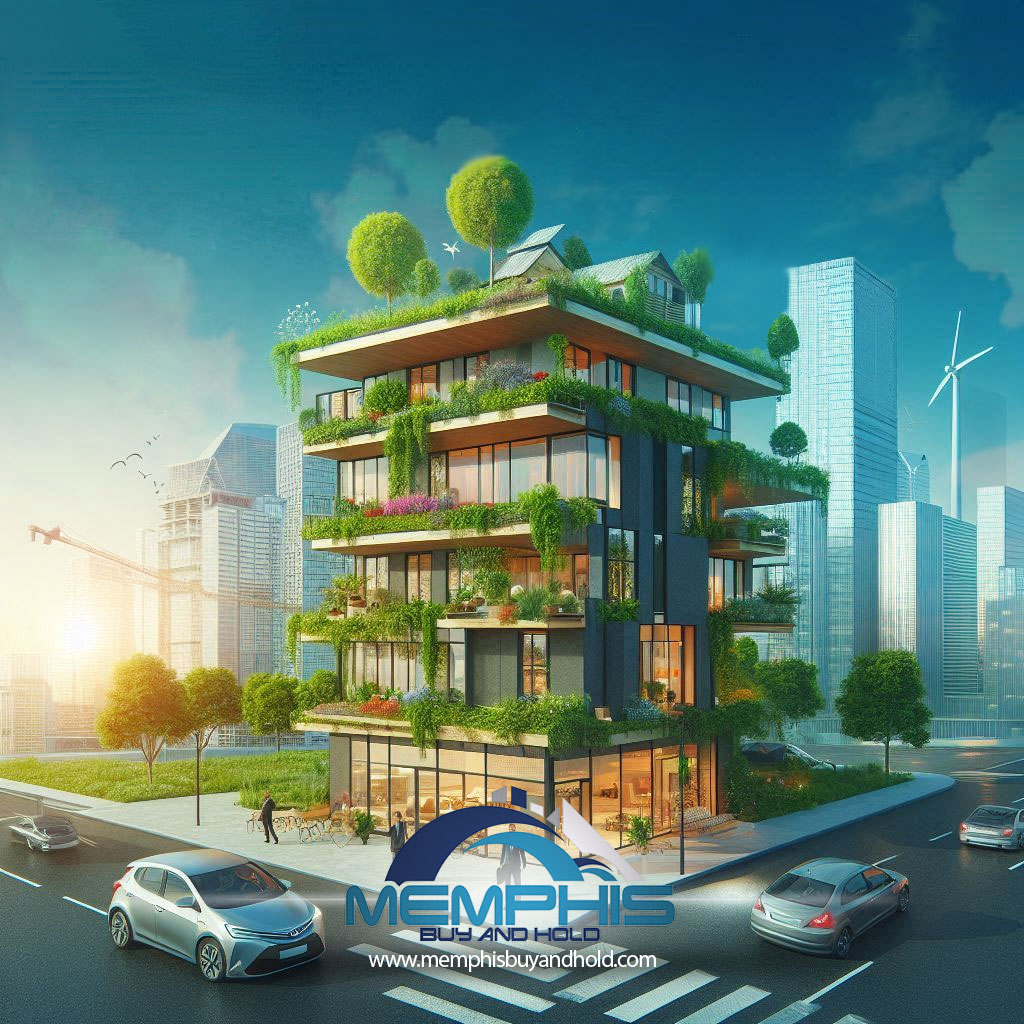
The real estate sector is undergoing a transformative shift as sustainability becomes a core focus due to the growing impact of climate change. This transformation is driven by rising insurance costs and the increasing need for properties to comply with Environmental, Social, and Governance (ESG) standards. Both residential and commercial real estate markets are feeling the pressure to adapt, ensuring that their developments are not only environmentally friendly but also resilient to the challenges posed by a changing climate.
Rising Insurance Costs
One of the most immediate and tangible effects of climate change on real estate is the rising cost of insurance. Properties in areas prone to natural disasters, such as floods, hurricanes, and wildfires, are seeing significant increases in insurance premiums. This financial strain is pushing property owners and developers to invest in sustainable building practices that mitigate risk. Implementing green infrastructure, such as rain gardens, permeable pavements, and green roofs, can reduce the likelihood of damage from extreme weather events, thereby lowering insurance costs over time.
ESG Standards
ESG criteria are becoming essential benchmarks for real estate investments. Investors are increasingly scrutinizing properties for their adherence to these standards, which encompass environmental stewardship, social responsibility, and effective governance. Meeting ESG standards often involves incorporating energy-efficient systems, using sustainable materials, and ensuring fair labor practices during construction. Properties that align with these standards are more attractive to investors and can command higher prices and rental rates.
For residential real estate, this means homeowners are looking for energy-efficient homes that not only reduce their carbon footprint but also lower their utility bills. Features such as solar panels, energy-efficient windows, and advanced insulation are becoming selling points in the housing market. For commercial real estate, businesses are seeking office spaces that offer sustainable amenities, like smart energy management systems and access to public transportation, to meet their own corporate sustainability goals.
The Role of Technology
Technology is playing a pivotal role in the push for sustainability in real estate. Innovations in construction technology, such as modular building and 3D printing, allow for more efficient use of materials and reduced waste. Smart building technologies, including IoT sensors and automated energy management systems, help optimize resource use and improve the overall sustainability of properties.
Moreover, data analytics is becoming crucial for assessing the sustainability of properties. Tools that analyze energy usage, waste production, and water consumption help property managers identify areas for improvement and track progress towards sustainability goals. This data-driven approach enables more informed decision-making and promotes continuous improvement in sustainability practices.
Policy and Regulation
Governments around the world are implementing stricter regulations to promote sustainability in the real estate sector. Building codes are being updated to require higher energy efficiency standards, and incentives are being offered for the development of green buildings. These policies not only encourage the adoption of sustainable practices but also create a competitive advantage for those who lead the way in sustainable real estate development.
For instance, in many cities, obtaining building permits for new developments now requires meeting certain sustainability criteria. Additionally, tax incentives and grants are available for projects that incorporate renewable energy sources or other sustainable technologies. These regulatory measures are essential for driving the widespread adoption of sustainability in real estate.
Future Outlook
The trend towards sustainability in real estate is set to continue as the impacts of climate change become more pronounced. Property developers and owners who embrace sustainable practices will be better positioned to navigate the challenges ahead. By investing in resilience and efficiency, the real estate sector can play a crucial role in mitigating the effects of climate change and promoting a more sustainable future.
In conclusion, the real estate industry’s focus on sustainability is not just a response to rising insurance costs and regulatory pressures; it is a fundamental shift towards creating properties that are resilient, efficient, and attractive to both investors and occupants. As technology advances and policies evolve, the commitment to sustainability in real estate will only grow stronger, paving the way for a more sustainable built environment.
Memphis Buy And Hold is specializing in locating, purchasing, renovating and managing single-family and multi-unit properties and possesses from 2007 up to the present of experience in real estate investing and property management in the Memphis and Nashville markets.
- Memphis Property Management
- Memphis Turnkey Investment Properties
- DCC Rentals LLC
Discover more from Memphis Buy And Hold
Subscribe to get the latest posts sent to your email.

